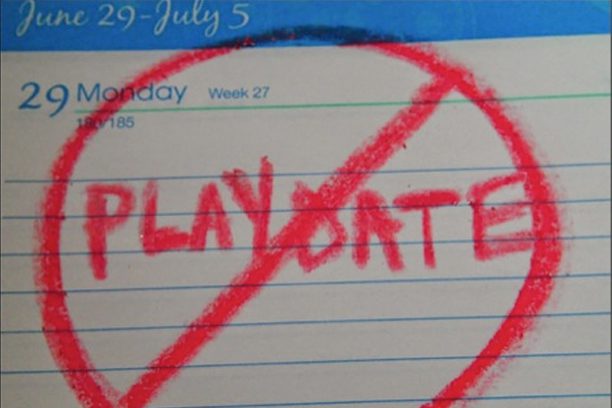
by admin | Jun 29, 2015 | Blog, Uncategorized
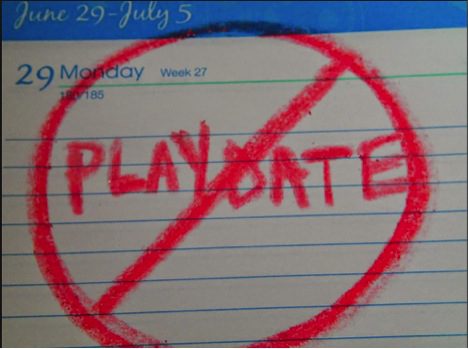
Play dates are a vital part of every parent’s handbook. Over the course of 12 years of motherhood I’ve hosted my fair share. The vast majority were wonderful. They were nice kids who played well with my kids. But then there are the others. This list is about those. Keep an eye out for these annoying kids and save your sanity.
Sadly I am sure my kids have been these kids from time to time. For those who have hosted my annoying kid, I am sorry. Really. If you find your kid is on the list take heart. You are in good company.
1. The Friend. This kid wants to hang out with you–and only you. He doesn’t grasp that he earned an invitation to your home for one main reason: So he can distract your kid while you get stuff done around the house. Nope–l’il Samantha doesn’t get it. You send the kids off to play on the trampoline–and Samantha wants to know if you’ll jump, too. You set the kids up with an art project on the dining room table, then retreat to the kitchen to start dinner. Two seconds later, Samantha is tugging on your apron, asking whether he can pour the macaroni.
2. The Snacker. I like when a child comes over, chomps on some popcorn, then goes about the business of playing with my kid. That’s not going to work for The Snacker. He wants a handful of grapes, a bowl of Goldfish, a bag of pretzels, and a cheese stick. Ten minutes later The Snacker is back for some peanut butter sandwich crackers. The Snacker is like the very hungry caterpillar, but considerably more annoying. True story: I once had a kid who ate me out of house and home, then–with her mother present for pick-up– opened up my cabinets and checked inside for a snack-to-go. The mom simply shrugged her shoulders and asked for sandwich bag. Neither was invited back.

3. The Tornado. This is the kid who, five seconds into the play date, has transformed my daughter’s Barbi Dream House into an “after” photo from Hurricane Sandy. Turn your back for a second and all the puzzles are pulled out. The Lincoln logs are dumped and crayons are strewn. Incidentally, this is the kid who doesn’t clean up, either. Nope, the Tornado chews on books and rips out pages; carries toys from the basement and deposits them in your upstairs bedroom. It is almost like the Tornado is mocking you because he knows you will go insane until every freaking piece is back where it belongs.
4. The Talker. You know the Peanuts teacher? The one who only says, “mwa mwa mwa mwa mwa”? That’s the sound you hear when the Talker comes over. The kid never shuts up. She talks about fairies and butterflies and flowers. She talks about books and plays and afterschool classes. She has to tell you about her camping trip with her grandma and oh-so-funny Uncle Jim. Then it’s on to world hunger. And Reese’s Peanut Butter Cups. And her daddy’s trip to Milwaukee. The Talker talks from the moment you pick her up at school until–three loooong hours later–her mom arrives at your house. As you bid farewell, the Talker’s mom offers that exasperated I-know-my kid-doesn’t-shut-up look and you realize you only had the Talker for a few afterschool hours. This parent has it far worse. The Talker is her kid.
5. The Indecisive Kid. This kid doesn’t know what she wants. Which smoothie would you like? Radio silence. Do you like Oreos? She’s not sure. Would you like to stay for dinner? “Umm.” Want to play in traffic?
6. The One Who Doesn’t Want to Play Anything.
Me: “Would you like to play a board game?”
Johnny: “No.”
Me: “How about painting rocks?”
Johnny: “No thanks.”
Me: “Oh I have a good idea. Why don’t you both make a huge fort in the living room with every pillow and sheet in the house? Go ahead a make a mess. I don’t mind.”
Johnny: “Nah, I did that yesterday.”
Me: “Lego? Ping Pong? Foosball? Baking? Basketball? Juggling? Dress up?”
Johnny: “Nothing sounds that fun.”
Me: “Then why the F#$& did you come over to play?”
(Admittedly, that last line was in my head)
7. The Crier. I have no problem with kids who show emotion and cry when they feel genuinely sad. This is not the Crier. The Crier cries all the time. He cries when he can’t go first. He cries when he gets softly knocked down by your excited dog (A wallet-sized cockapoo in my case). He even cries when the ice cream man is out of his favorite pop. As soon as you resolve one issue, another rears its head.
8. The Precocious Kid. Ah, a real gem. This is the one who teaches your child about tampons and sex. This kid knows about kissing–with tongue. From this little darling your child learns words you have painstakingly kept out of the family vocabulary and euphemisms that would make a pimp blush. In one short play date the Precocious Kid exposes your dear and innocent child to the great big adult world out there. Now, at age 9, you have to schedule an endless list of reparative conversations about the birds and bees, how babies get here, and why you can’t get pregnant from sharing a swing in the playground.
9. The Messy Toileter. This kid couldn’t find the center of the toilet bowl if you put up a landing strip with flashing lights and sunk neon Cheerios to the bottom. He dribbles pee around the toilet and leaves little brown smears around the rim when he wipes. He may or may not wash his hands but he definitely doesn’t use soap. He probably doesn’t remember to flush or put the seat down either. Might be a nice kid, but he needs some home training, STAT.

10. The Squatter. This is the kid who won’t leave. Ever. The parent has said 15 times to get her shoes on and she just runs around the house. She can’t find her socks. She left his backpack in the car. She thinks her super special bouncy ball is in your son’s room. She has to go and check but that would mean taking off her shoes again. On and on and on and on.

by admin | Jun 17, 2015 | Blog, Uncategorized

Every year I perform the same ritual. I rack my brain and search the Internet to figure out what to will get my dad for Father’s Day? What do you get for someone who doesn’t need anything or want anything? Growing up I learned that the best gifts are the ones that are homemade and from the heart. But at my age a macaroni covered ashtray spray painted gold isn’t going to cut it. I’ve been making cards and bowls and cakes for my parents for years. This year I decided not to do any of that.
I have a great dad. He isn’t gushy with words of love and therefore I also am not gushy with him.
But I don’t want to make the mistake of missing the opportunity to tell him that I recognize all he gave me.
So, in honor of father’s day, here is my list of 6 lessons a great dad taught a lucky daughter.
1. When people say, “It can’t be done”–ignore them. My dad can fix anything. He studied engineering in college but became a businessman instead. That didn’t stop him from being able to use his skills daily. Once after he moved into a new house the cable man told my dad that he wouldn’t be able to get cable in the downstairs bedroom. “Yeah, right,” Dad replied. He spent the better part of a Sunday crawling under the house with who knows what. He laid the cable, connected it, and–BAM!–we had cable in the downstairs bedroom. The takeaway for me was much more far-reaching than not to take no for an answer from the cable guy. I learned that if you put your mind to something you can make it happen.
2. Girls can be handymen. When my husband and I purchased our first home my dad bought me a drill. He didn’t give it to my spouse. He gave it to me. The drill came with a package of drill bits. My dad said after I used each bit he would get me a bigger pack. I put my mind to using that drill for everything. I hung mirrors, drilled holes for towel racks and I even put a hole in our maple tree to make maple syrup. That drill made me feel powerful and capable. Maybe since my dad didn’t have any sons he gave his knowledge to his girls without thinking about it. Or maybe he just didn’t buy into the idea that girls can’t fix stuff. I chose to believe it’s the latter. When my daughter was in preschool she did a project about her parents’ jobs. She said “My dad writes books and is a sports writer. My mom fixes things.” Mission accomplished.

3. You don’t have to raise your voice to get your point across. My dad has never–not once– raised his voice at me. He didn’t yell when I can-opened the side of his car. He didn’t yell when I stole his company’s phone card and used it to call my friends around the country. He didn’t even scream the time I got kicked out of sleep-away camp, and he had to drive six hours to Maine to get me. Dad just kept his cool and said the three worst words (I’m very disappointed). Then he would hold us accountable for our actions. That levelheadedness was a lifeline. At the end of the day we knew that whatever we did, he would be there for us, and we would work it out.
4. If you have something, share it. There is nothing my dad has that he wouldn’t share with a friend or family member. He had a great beach house and everyone was always invited. You may have had to sleep on the couch or floor but you were welcome. He would lend you any shirt even though he knew he might never get it back. If you needed a car for the weekend, he would go without one so you could go off with your friends. He showed us that giving is better than receiving.
5. If you cook it, they will come. Parenting experts carp about the importance of family dinners, and for good reason. My dad rarely missed a family meal. In fact, meal times became the center of our universe. When my parents divorced Dad took on cooking as an all-day activity. We read recipes. We shopped at specialty stores for ingredients. Next we cooked until nighttime and ate our masterpiece for dinner. When parents take the time to prepare the family meal with thought and love, the kids–even as teenagers–will come running. I learned that from my dad.
6. Actions speak louder than words. My dad is a man of few words and as he ages they have become even fewer. For years I waited for the moment he would say he loved me. Now I think how silly to wait for words instead of seeing the actions that were so much more tangible. My dad is the kind of guy to pick you up from the airport at 2am. He is the dad who spent hours working with me on my science fair project. And the dad who made sure we had everything even when we didn’t appreciate it. I know my dad loves me because he showed me in a 1001 ways.
This father’s day, I passed on the tie and the cologne and a shaving kit. I hope my dad likes this list just as much.
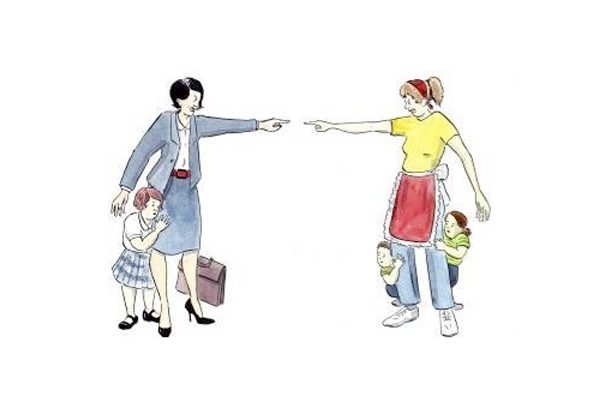
by admin | May 26, 2015 | Uncategorized
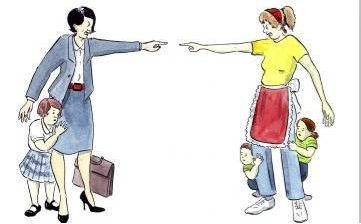
The mommy wars have created a harsh dichotomy between stay-at-home moms and the working mother. Way back in the 1960s, Betty Friedan trumpeted the idea that women can choose to work outside the home–And immediately the catfight between the two groups began.
For a great many women, however, neither classification applied. With an increasing number of work-from-home opportunities (can you say direct sales?) and flexible schedules, they are members of both castes. These women deserve their own moniker and from now on should be referred to as stay-at-home-working mothers (SAHWM). Here’s how you know if you are a SAHWM (Pronounced saw-hum).
1. You have two jobs. There’s no rest for the SAHWM. First there’s the job for which you receive monetary compensation. This job generally has deadlines and work product requirements. And there is often a pesky boss who checks on your work from time to time. The other job is the one of raising the kids. This job requires cooking, cleaning, chauffeuring, scheduling, and bathing (the kids, not necessarily yourself). SAHWMs are constantly balancing finishing a quarterly report with planning a Spiderman birthday extravaganza. They supervise play dates while prepping for dinner all while on a conference call. They have all the responsibility for pick up, doctors’ appointments, and the PTA. But SAHWMs also plan work retreats and have meetings. For SAHWMs working does not negate the need to food shop, schedule afterschool activities, do laundry, clean the house, and make the dreaded school lunches. If you work these two jobs you are a SAHWM.
2. You are confused by the mommy wars. The mommy war implies an us-vs.-them mentality. You don’t know which camp you are in. The stereotype of a stay-at-home mom is a mom who does the housework and minds the kids–But also goes to the gym and meets her friends at Starbucks for skim iced chai tea lattes. Stay-at-homes don’t contribute to the finances of the household so some feel badly spending money on personal items. This isn’t you. You don’t feel badly about taking from family budget because you are the family budget. And you almost never get to the gym (You tell yourself you’ll get there when the kids go off to college). So you must be a working mommy. Well, the stereotype of the working mother is that she isn’t there to raise her children. She misses the class trips to Legoland. And she cares more about her career advancement than her children’s milestones. Ouch. Also, not you. That’s the thing about the SAHWM. You do Legoland, and pick up afterschool. So you must be a SAHWM.
3. You feel stressed all the time. SAHWMs burn the candle at both ends. They eat the ice cream cone from the top and bottom. They walk a tight rope across Niagara Falls. SAHWMs try to give their all to their kids and their work. Yet too often both sides feel compromised. If it seems as if you are never caught up, always have more work to do, and look forward to being alone in the supermarket, well, you’re probably a SAHWM.
4. You are really two people. SAHWMs gauge their audience all the time. If they are at a birthday party they become the mom who can talk about teachers to avoid (You know the one) or the latest bully on the block (Stay away from little Johnny). If they are at work, they learn to minimize mommy talk to avoid losing cred with the higher ups and their peers. A SAHWM wouldn’t think of mentioning the kids vacation schedule at work, and she wouldn’t dare talk about how hard work is at the birthday party. If you are constantly shuffling back and forth between these two women you are a SAHWM.
5. You take efficiency to a new level. SAHWMs don’t have time for a wasted minute. They need to be all things to all people. When at school they want to get in and get out. They nearly crawl out of their skin when the PTA devotes an hour and twenty gosh darn minutes to debate which type of swing would be best for the new playground (Your answer, who cares?). When SAHWMs are working they get eight hours of work done in five. SAHWMs don’t like committees or group projects. Scratch that–they loathe any project of any kind. If a memo comes home from school that a diorama of the water cycle will be due next week the SAHWM wants to lead the coup to overthrow the administration. If you make lists obsessively and follow schedules like your life depended on it, you are a SAHWM.
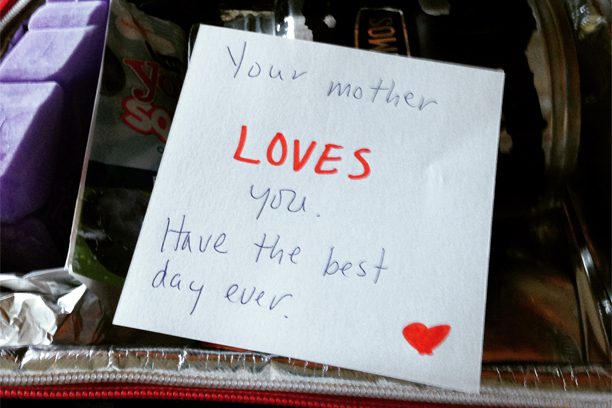
by admin | Feb 11, 2015 | Uncategorized
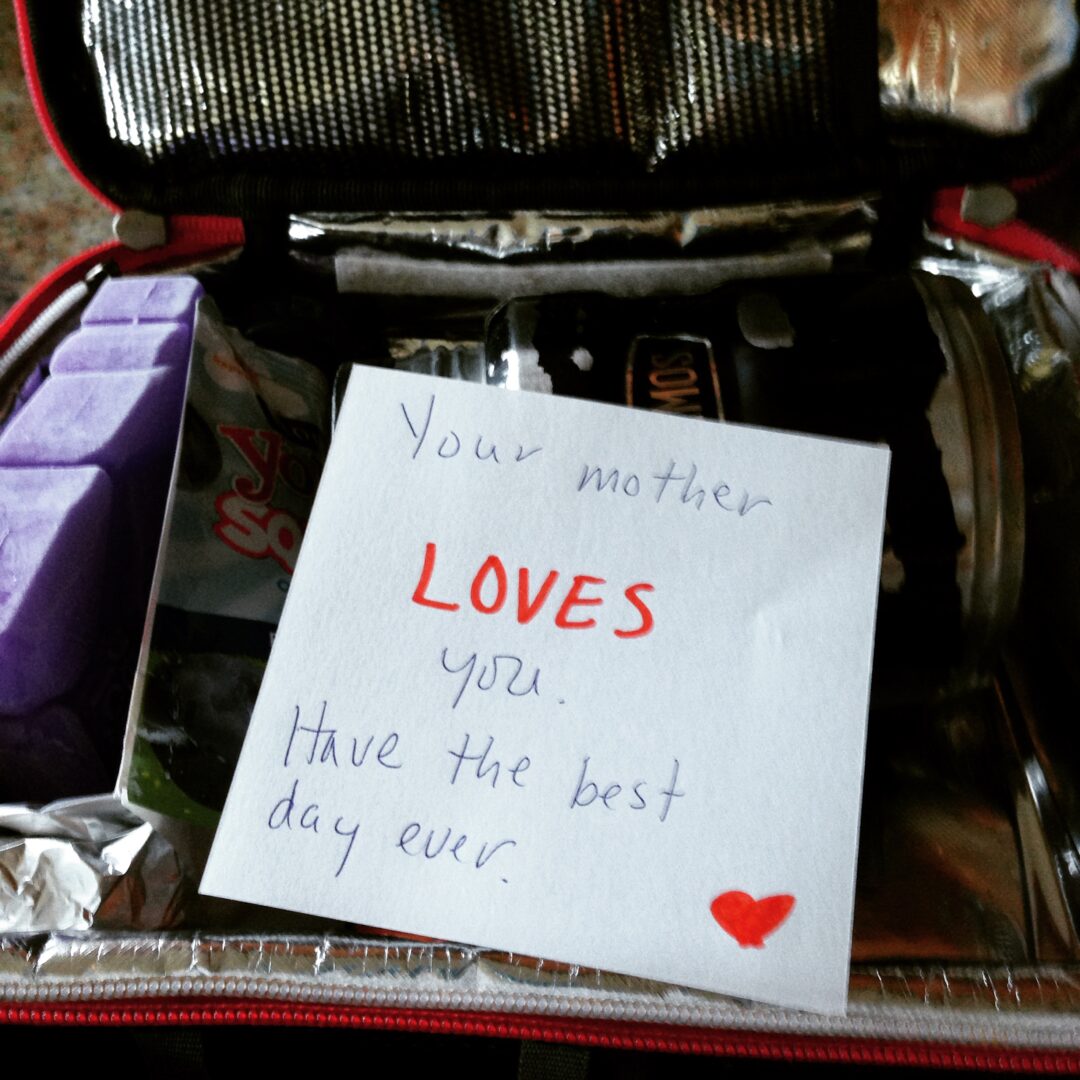 While recently standing in the CVS checkout line amid piles of Valentine schlock, my son–an inquisitive little guy–asked a question that most of us have surely pondered in our lifetimes. “Mom,” he said in a loud voice, “why do we need Valentine’s Day? I mean, aren’t we supposed to love everyone every day?”
While recently standing in the CVS checkout line amid piles of Valentine schlock, my son–an inquisitive little guy–asked a question that most of us have surely pondered in our lifetimes. “Mom,” he said in a loud voice, “why do we need Valentine’s Day? I mean, aren’t we supposed to love everyone every day?”
There I was, surrounded by suddenly curious drug store customers, at a rare loss for words. Just a few days before I had (purely by coincidence) taken the question to Facebook: Is Valentine’s Day just a Hallmark-induced holiday, or does it mean something? Predictably the responses ran the gamut. Some relish the opportunity to show their special someone demonstrative love. Others consider Valentine’s Day little more than a contrived money-making boondoggle. A few people were sensitive to those who wouldn’t receive a Valentine–and how hurtful that could be.
So when my son asked the question, I was somewhat prepared.
Every year, on the night before Valentine’s Day, my husband and I decorate our kids’ rooms while they sleep. There are hearts and streamers. There are homemade messages strewn atop their furniture. We stick hearts in their underwear drawer and hearts in their lunchboxes. Balloons hang in the air. They get a special breakfast and I usually send them off to school with a hug and a bigger-than-usual “I love you!”
We love doing it, and they love it too.
At its best, Valentine’s Day is a reminder to recognize the loves in your life. It doesn’t have to be formulaic or mandated from large corporate interests. And just because those corporate interests exist doesn’t mean we have to scrap the entire holiday (If we did that, we would also have to do away with Christmas, Easter, Mother’s and Father’s Day).
Back when I was a girl my dad would come home from work on Valentine’s Day armed with a giant Hershey’s Kiss or a bouquet of flowers. It was the only time I received flowers or chocolate and it was special. As I grew older I had myriad Valentine’s Days without a Valentine. Many years were spent searching for the perfect Valentine and Valentine’s Day card, dinner, gift, etc. Some years were great and some were lonely.
But the bottom line is that sometimes people do need a reminder. We can get so busy we forget to appreciate the people we love. And there’s an oft-overlooked beauty in making the day special for someone else.
So with all this in my heart I asked my son a question in response to his question. “Yes,” I said, “it is true we should be kind and generous all the time. But what’s the harm in stepping up the game one day a year?”
To that, he had no answer. I told him I loved decorating his room and making the day a special day. I asked if he thought we could still do that. With a smile on his face he said we could. We went to pay for his Valentine’s cards for his classmates. The man at the register complimented my son for being a deep thinker and I smiled.
I focused on the joy I will try to bring to someone’s day on Valentine’s day. I don’t feel off the hook from treating people with love and kindness the rest of the year either. In fact, I feel more inspired.

by admin | Jan 12, 2015 | Uncategorized

Twenty years before my first child was born, my sister, Leah, and I traveled to Thailand together. We discovered a colloquialism that seemed ubiquitous to the country: Same same but different. Here is an example of how the words were employed. In a restaurant I order an orange. The waiter brings me kumquats. I say, “Um, I ordered an orange. These are kumquats.” The waiter responds, “Same same, but different.”
The saying was always greeted with a quizzical look from my sister and me. On the surface it doesn’t make any sense. How the heck can things be the same and also different?
Now, as a parent, I think of “same same but different” in a whole new light. Parents often use a one-size-fits-all approach with their children. Two kids take cookies without asking, and Mom and Dad punish them identically. No dessert for a week. You have two sons. They both get in scuffles on the schoolyard. Both received stern talking-tos and no TV for a week. This is how parents generally work. A punishment is a punishment is a punishment. The temperaments and personalities of the individual children are not considered.
But kids do not emerge from a one-size-fits-all box, and they often require very different responses to life’s challenges than their siblings.
I was reminded of this after listening to an episode of the This American Life podcast. The subject was regret. As a child Elna Baker was caught whacking her sister over the head with a broom. Her father–who would have simply punished his other children–instead decided the best route would be to conduct a mini-trial. Elna held steadfast that she didn’t commit the act on purpose. Instead of punishing Elna, her father did nothing. He let her get away with it. He figured that would be a more effective punishment for Elna.
And it was. Elna thought about the incident for the ensuing 15 years into adulthood. She is still apologizing.
Parents need to realize that while their kids are growing up in the same house, they need not be treated equally all the time. Kids will complain that parents aren’t being fair. Guess what? They are right. That’s OK.
It is impossible to make all efforts with your children equal. So stop trying. Give your children what they need, when they need it.
I snuggle and hug and kiss one child because it comforts him. And I blow a kiss to the other because that is right for her. One gets a new desk, one doesn’t. One needs more reminders to be thoughtful. One needs more time out while the other needs more discussion.
Same same, but different.
by admin | Oct 22, 2013 | Blog, Uncategorized

As I entered the kitchen this morning to make my much-needed hot tea, I saw the remnants of my son’s football-themed seventh birthday party. Presents and cards from friends piled up. Green-and-white streamers, paper footballs, a homemade team T-shirt left behind.
My husband and I have always tried to make birthdays special for our kids by hosting the parties at home. Our kids truly look forward to the moment when they see the decorations, the themed-cake (which takes me about seven hours to create), the games and crafts. They love it all. Even as my daughter approaches the teen years, she still cherishes the homemade party.
And yet, the party doesn’t make itself. It takes weeks of organization, shopping, ordering, and prepping. It is a task I love and fear all at once. How will I get it all done? If I spend all this time getting ready for the party, then I am not doing something at work. Or worse, I have to find a way to pact it all in.
I’m not great at finding balance. I came to this conclusion this morning when I work up exhausted. Headachy. Beaten down. I didn’t sleep well. I was too stressed about all I need to get done in the next few weeks. I have three conference presentations to write and present. I have two Halloween parties to organize and run. I have family dinners, school projects, and doctors’ appointments. I teach four weekly classes, I need to update my lesson plans. It all just feels like too much.
I often talk with other working moms about how they balance career and family life. What I have come to realize is that you cannot have it all. You can’t have a high profile career and make homemade goodies for every school-sponsored bake sale. You can’t travel for work and make sure that your kids have a healthy snack for lunch every day. You can’t make it to every class trip or art show or play and still meet all of your obligations at the office. You have to make choices and sacrifices.
I don’t care how many high-profile women (a la Sheryl Sandberg) pen best-selling books saying they have cracked the code. You can’t have a dream career, be successful at it and be able to be a full-time supermom. Somewhere, something has to give.
In my case –to be 100-percent honest–I haven’t cracked the code. I haven’t found a way to do it all. What inevitably happens is that I either try to do it all and find that I can’t (stress winds up trumping enjoyment). Or I give up doing something that I thought was important to me, like being a class parent, picking up from school, or making homemade _____ (fill in the blank).
Some working women are very driven by their work identity and are comfortable surrendering some of the day-to-day parenting tasks. Other women give up work altogether and devote themselves fulltime to parenting. These stay-at-home moms give up the idea of working outside of the home quite comfortably. Lastly, there are the moms (like me) who aren’t in either of those positions. I am not able to hand over a piece of work or a piece of parenting. This leaves me feeling perpetually behind the 8-ball–stressed, and feeling like I am not doing enough anywhere.
While I acknowledge my problems intellectually, I can’t find a way to change. I don’t know how to prioritize. It all seems important. I want to get tenure at work, which means doing more than just my job. But I also want my kids to feel like I was there for them in their childhood. I want them to remember the special touches–their birthday cakes, the handmade Halloween costumes, the Sunday dinners with family. I want them to know that, while I choose to work, I love them more than my job. I want them to know happiness in childhood so they can find it in adulthood.
I don’t know if I will accomplish my tenure or if I will give my kids the childhood I wanted them to have. For today, I will continue to walk the highwire trying to balance it all.
And I’ll try not to fall off.














